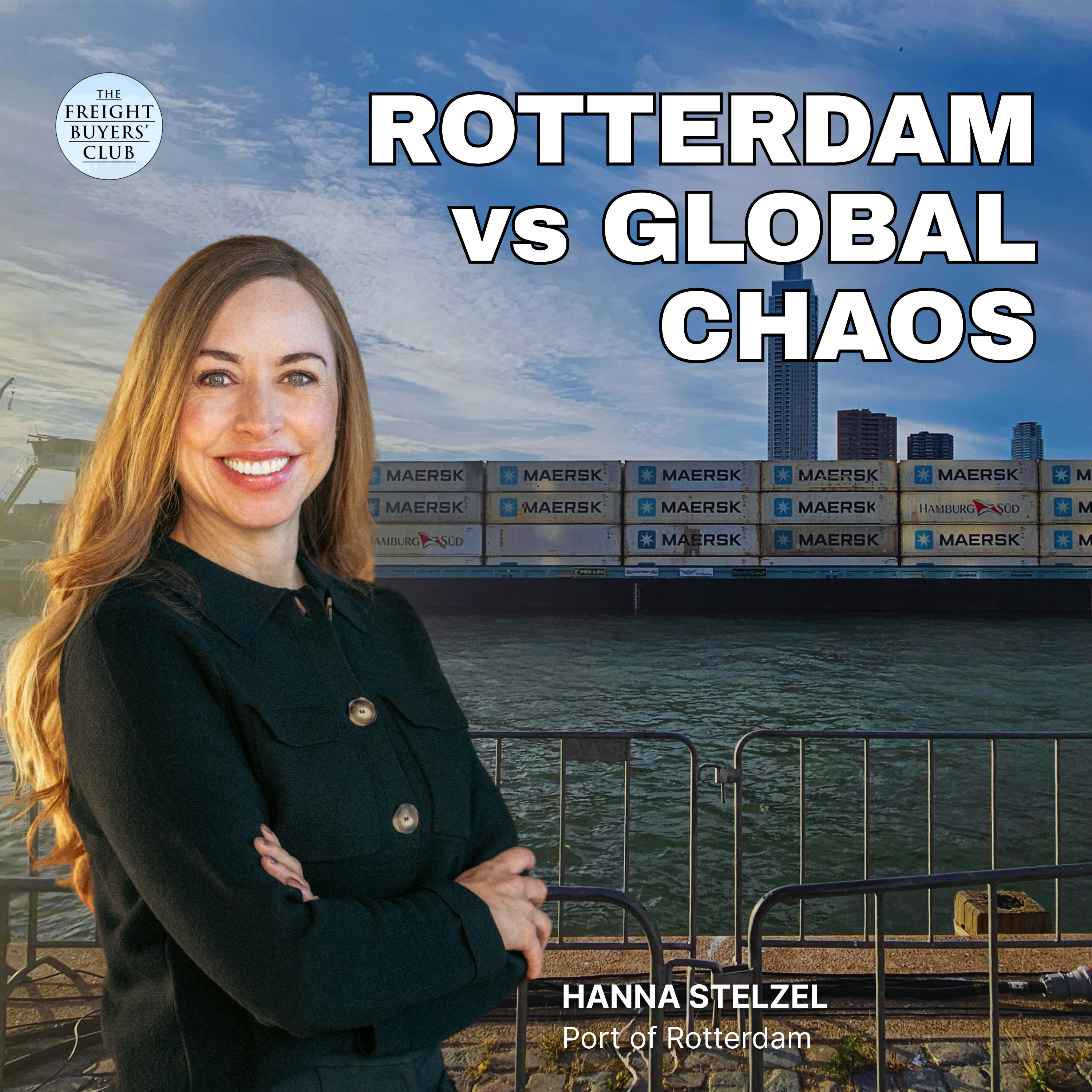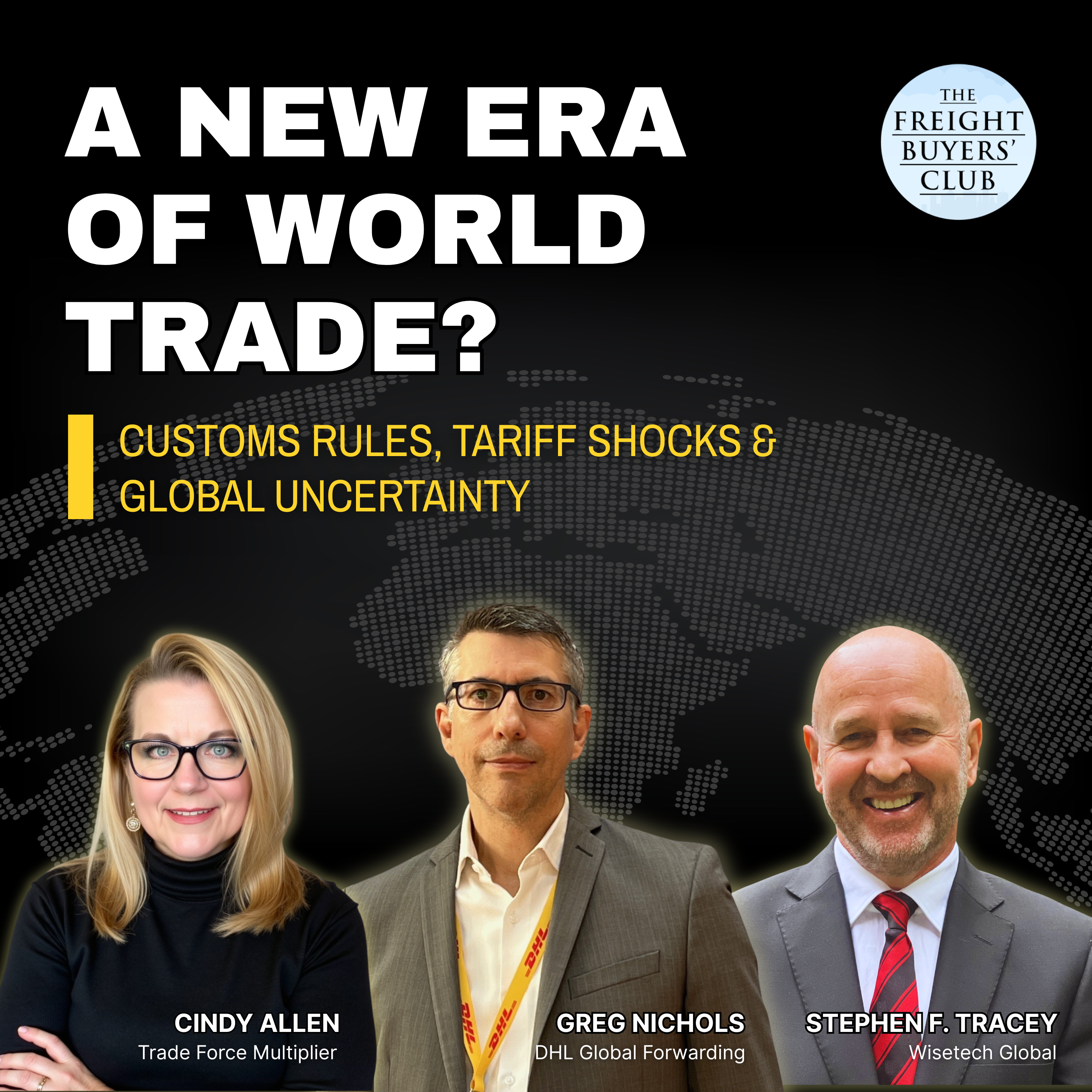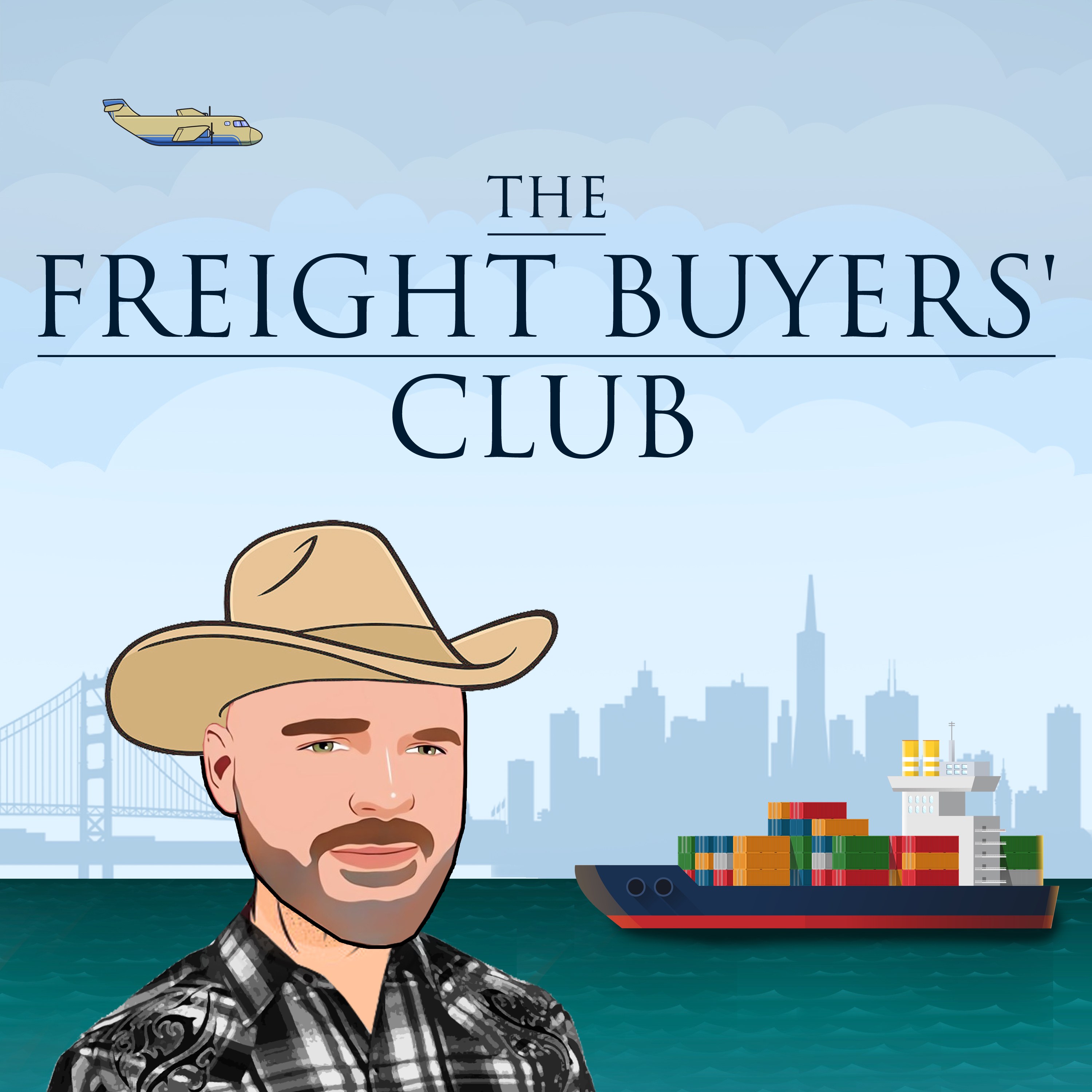[00:00:03] Speaker A: You are listening to the Freight Buyers Club, a home for those interested in international trade, shipping, procurement, logistics and air freight. In fact, all things supply chain in the Americas, Asia and beyond.
[00:00:18] Speaker B: Hello and welcome to the Freight Buyers Club. I'm Mike King. This episode is produced with a kind support of MSC Air Cargo. So a big thank you to them. As many of you know, MSC now operates not only the world's largest container China shipping fleet, but also its own dedicated air freighter network.
Today, we're exploring a policy shift that's having a serious impact on air cargo and express logistics. That's the end of de minimis exemptions for Chinese and Hong Kong goods entering the United States.
[00:00:47] Speaker A: The Trump administration is ending today something called the de minimis exemption.
[00:00:52] Speaker B: And starting today, American shoppers may find.
[00:00:55] Speaker A: Cheap goods from online retailers not so cheap anymore.
[00:01:00] Speaker B: We'll break down what de minimis actually is, why Donald Trump's new trade policy is hitting e commerce flows and how this could affect air cargo rates, capacity and risk for shippers everywhere. And we'll be hearing from a who's who of industry executives to explain all this.
Okay, so de minimis is Latin and it roughly means too small to bother with in trade. In refers to low value goods that don't require customs duties. And almost every country in the world sets a limit that defines what amount is too small to bother with. Until recently, goods entering the US valued at under $800 were exempt from duties, a policy that fueled the growth of direct to consumer e commerce from China. This $800 threshold helped support more than 1.3 billion billion shipments in fiscal year 2024, the majority from Chinese platforms like Sheen and Temu, and much of it airlifted on freighters. But in May 2025, that exemption ended. Donald Trump called de minimis a big scam and issued new rules placing duties on previously exempt parcels from China and Hong Kong that were either 30% of their value or a fixed amount. This keeps changing. But first it was $25 per item, and this rose to $50 in June. All of this, of course, was part of ongoing negotiations and bring friendship in the US Trade war with China. The upshot, though, was that low value e commerce goods became far more expensive to deliver to the United States fair cargo markets. The impact was immediate. Forwarders reported a sharp drop in e commerce volumes in the first week of May alone. Rotate said that freighter capacity from Asia to North America was slashed by 40%.
[00:02:51] Speaker A: So recent changes in US diminished regulation regarding China and Hong Kong. It's actually impacted a lot for the airfreight market because we see that start from beginning of May, there's daily 40 freighters be canceled. So it's talk about let's say 4,000 tons per day. So that's a huge reduction on the capacity. But in the market we didn't see air freight rates growing up. That's mainly because of most of the E Commerce platform. They have suspended their orders especially in the past for those B2C orders, they have suspended that and that's released a lot of capacity into the market and because of general cargo haven't catch up due to those tariff issues.
So we see that the imbalance for the capacity and demand that's also leading the pricing actually this year cannot compare with same time period last year. It's always at not that high, high level let's say like this.
[00:03:52] Speaker B: That was Cathy Liu, global head of sales and marketing at Demerco Express Group, a major player on the Trans Pacific. She says that in the past two years E Commerce made up over 30% of China's air freight to the US and most of that has vanished. In fact, air cargo rates stayed elevated through much of 2024 because of E Commerce demand.
And of course this Trans Pacific demand crash has global implications. Rotate analysis notes that There are around 550 active widebody freighters in the world at any given time.
Now normally around 200 of these would be dedicated to the Trans Pacific. So when demand on that lane drops, it has a domino effect on rates and freighter deployment.
And the upshot of that falling demand is that rates are under pressure because all of this has come on top of lower demand for flying things like automotive parts, toys and electronics due to higher tariffs. Although a 90 day tariff truce between China and the US from 14th of May has given some temporary respite on that front. And we'll just take a short break there.
This episode is kindly supported by MSC Air Cargo. Now, no matter what you are shipping, you know that reliable air cargo can make all the difference. That's where MSC Air Cargo comes in. With a dedicated freighter fleet connecting major gateways and tailored pickup and delivery services that extend beyond the airport. They help you move shipments seamlessly and expand your global reach. Whether you're coordinating complex logistics or streamlining delivery for your clients, MSC Air Cargo is the partner that helps you go further faster. Learn
[email protected] AirCargo welcome back. For anyone in air freight, what is worrying is this focus on de minimis and the fairness of E Commerce exports from China direct to consumers is not solely A US concern. Europe is also looking at new fees for low value parcels. The question now is whether this is just the start of a broader global rethink on de minimis policy and trade with China. Over to John Pearson, CEO of DHL Express.
[00:06:05] Speaker C: The impact of de minimis on E Commerce. Don't forget that de minimis is only China and Hong Kong to the US where the threshold has been removed of 800 is now zero. What does that mean? That means a T shirt or a dress for a prom or a garden hose fitting now has a tariff attached to it of whatever percent may change. And that may mean that that item is more expensive than someone would necessarily be wishing to pay. And that is certainly behind the drop in volume from China to the US that we've seen already. We're in a good position or we're in an operationally capable position to pay those duties on behalf of the receiver to pay any formal clearance charges that may accrue to those packages, get the package delivered quickly and make it very clear to what the recipient is due to pay in duties and taxes. Some good, some goods, apart for a Cannondale mountain bike, apart for a Fender guitar. A high end piece of luxury will carry the duties quite satisfactorily. And others things would appear not so economically sensible to ship right now. And this is this moment of uncertainty. What's happening with de minimis? I would restate that de minimis is only from China and Hong Kong. Whether that is broadened out to the rest of the world or not, we don't know yet. And whether other regions who have de minimis Europe and UK at 150 and 135 or the other way around.
Canada is 40, Australia is a thousand. There's quite an array of de minimis levels out there and I would be the first to agree that quite a lot of these countries are thinking about their de minimis levels in line with a fairly broader picture of whether it's right to change in a fairly sort of knee jerk way or whether it actually satisfies whether the 40 for Canada and the thousand for Australia is right for their society and their long term plans.
[00:08:04] Speaker B: Of course for shippers who rarely use de minimis the result might be welcome more available capacity and downward pressure on rates. Here's Mark Chadwick from the Global Shippers association whose members include heavyweights like GE Healthcare.
[00:08:18] Speaker D: So E Commerce in 2024 had a massive impact on the air market.
We negotiated outrage back in February. Already E Commerce had been building over the last few years. But by April May forwarders were already having difficulty getting capacity because of the explosive growth of E Commerce. So for shippers like us, even though we don't ship E Commerce, this was having an effect on spot rates were 2, 3 times the price that we'd expected.
Difficulty getting capacity delays in shipments. So huge impact on general shippers that had nothing to do directly. At least with E Commerce and with this de minimis limitation, hopefully that will change and this year we'll see more capacity back from some of the traditional shippers that are in this for the long haul, not flesh in the pan TikTok sales for today, but not for tomorrow.
Our shippers plan to be in this long term for the next 10, 20, 50 years.
[00:09:19] Speaker B: But looking ahead, uncertainty remains. Tariff and de minimis rules could shift again, especially with the White House keen on using trade policy as a political lever but facing legal challenges at every step.
So how to plan ahead? Over to Senior Logistics Executive and a member of the Board of Directors at the Air Forwarders association, it's David King, who I caught up with on the banks of the Thames in Twickenham.
[00:09:45] Speaker E: What forwarders, shippers and carriers need to do in order to manage the risk being brought on by the de minimis on a global level is invest in tools that allow them to be agile in managing these risks. Whether it's de minimis or any other risks going forward, the industry has to be much more deliberate in the way it plans and pivots when handling and tackling all these challenges.
[00:10:08] Speaker B: That's it from the Freight Buyers Club. Thanks again to MSC Air Cargo supporting this episode and thank you all for watching. As ever, immense gratitude to Karen Ball and Tom Matthews for all their expertise in putting this explainer together. If you found it useful, please do hit subscribe, follow the podcast and please share it with your team.
Independent journalism in Freight Matters. It only works with your support.
I'm Mike King. See you next time. Sam.


